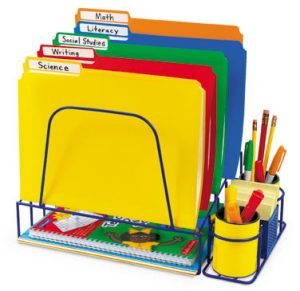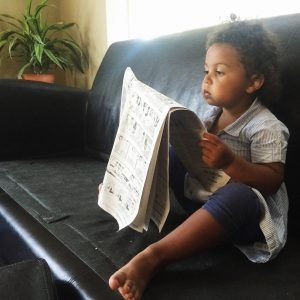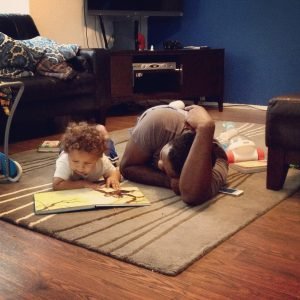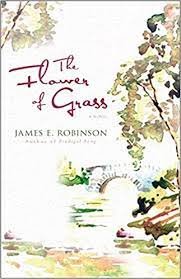Christian Homeschool Blog
Homeschooling can be challenging! Our Christian homeschool blog delivers tips and tricks for homeschooling your children.
Organization and Flexibility: Can you have one without the other?
Organization provides the framework for reaching the important goal, but flexibility allows us to do so without losing our patience. Flexibility helps us retain our joy.
If We Only Knew What We Don't Know
I was supposed to write about organization, but recently something happened, and I can't pass up the opportunity to share about it.
My husband Terry and I were excited to go to the beach to dig razor clams. Obstacles prevented us from heading out as soon as we wanted, but we finally hitched up the camper and started out. We'd be able to dig clams on that evening's low tide if we hurried.
Organization (for the organizationally challenged): Part One, An Overview
Before jumping into the topic of organization, I need to state a disclaimer: I'm not an organized person, nor do I believe being organized makes one holy. I view organization as a necessary evil.
So why blog about it? Because neither am I a fan of chaos. For anything to get done in a timely manner, a plan is needed. There is a level of organization necessary if we are to succeed.
Charlotte Mason and TLP Part Two: "The Gentle Art of Learning."
I've stolen the phrase, "The Gentle Art of Learning," from Karen Andreola's book "A Charlotte Mason Companion," because it is the perfect description of how many believe we should educate our children. There is no valid reason for the strict schedules and rigid pre-set goals forced upon many students by arbitrary scope and sequences and standardized tests. Children are predisposed to learn, but this does not mean they thrill to be tested, or are interested in the same things a distant national organization deems appropriate.
Charlotte Mason and TLP Part One: Candles to be Lit
I've stolen the phrase, "The Gentle Art of Learning," from Karen Andreola's book "A Charlotte Mason Companion," because it is the perfect description of how many believe we should educate our children. There is no valid reason for the strict schedules and rigid pre-set goals forced upon many students by arbitrary scope and sequences and standardized tests. Children are predisposed”
The Reluctant Reader: NOT! Does My Child Read Too Much?
Some children read too much to replace their need for friends. They have no friends to drag them away, nothing else to distract them.
The Reluctant Reader and Thinking: Like Oil and Water
Homeschooling shouldn't alienate you from your children, yet you feel battle lines have been drawn.
The Reluctant Reader: The Importance of Narration
My favorite way to teach history is through such living books. Living books are not text books. They are never pedantic, never boring, never condescending.
Reluctance to Reading: Identify the Issue
If your child struggles to learn how to read, of course he is reluctant. You may need to back off. Definitely back off if he is under seven years old. Remember how we discussed the development of eye sight and other hindrances to learning to read? Continue reading aloud to him, but stop forcing him to perform. He isn't ready. If he is still striving unsuccessfully as a nine year old, it may be time to seek more help.
Reluctant Readers: Finding the Right Book, Part Two
It would be easier if we could say, "My children dislikes reading, so he doesn't have to read," in much the same way we can say, "My child doesn't enjoy baseball, so he doesn't have to play." Unfortunately that is not the case. Reading is a life skill. (Some might say baseball is, too, but that's another topic.) Not a day goes by that we don't read something, if only the label on a can of green beans.
Reluctant Readers: Finding the Right Book, Part One
This post covers working with the reluctant reader who can read, but doesn't enjoy it. Maybe even stronger than not enjoying, he really firmly dislikes reading.
Now what? Do you make him read anyway? It isn't fun for him, so is it a battle you want to fight?
Reluctant Readers: Not Unintelligent, Just Not Ready
What is one of the first things homeschooling moms want to teach their children? How to read! Yes! So, Mom is ready, but is Joe? A lot has to happen for a child to be ready to read, and intelligence itself is a minor factor. It's more about development. Development and intelligence are not the same thing.
To Read Or Not To Read--Never the Question
Are you back to school now that the holidays are over? Do you feel revived and recommitted to your homeschooling journey? Perhaps you added "read more" to your New Year's resolutions.
Working with Reluctant Writers, Tip 4: Read
Tip Four: Read.
How simple is this concept? Writing and reading go together like peanut butter and jelly. Skilled writers are readers. It makes sense, doesn't it? An artist learns to draw by first looking at pictures. An aspiring musician listens to music. Writers read.
What if the Reluctant Reader is Mom?
You've heard it so many times, it has become easy to block out. All the experts say, "Read to your children."
You nod your head in agreement and hold inside your objections. My toddlers are wriggly and don't want to sit still while I read. I don't want to sit still while I read. I can't do the voices. I don't have the time. I've tried, but she turns the page before I'm done. The only book he wants to listen to is "The Little Blue Truck," and I can't face it again. I'm not a reader, and my life isn't so bad.
Working with Reluctant Writers, Tip 3: Validate the Process
We teach that writing is a process, then ask students to follow a five-step procedure. They'd rather not complete those five steps. They'd much prefer do it in one step and if all we, as teachers, are interested in is the final product, we've provided scarce motivation to follow the five steps (discuss and gather information, write, revise, proofread, publish).
Working with Reluctant Writers, Tip 3: Discuss first.
I remember sitting with a blank piece of paper in front of me, pen in hand, and feeling paralyzed. There were ideas spinning in my head, but none worthy of a first sentence. The ideas swam around, without coming close enough that I could reel them in.
Book Review: The Flower of Grass
I am thrilled to begin a new feature on our TLP website offering book reviews not just for children, but for adults, too. My first review is for The Flower of Grass by James E. Robinson, an introspective work that will appeal to romantics and realists alike for its honest approach, realistic characters, and intriguing plot.
Tips for Working with Reluctant Writers
Picture the struggling writer: He sits at the table, a blank sheet of paper in front of him. He swings his feet back and forth, taps the pencil on the table, rubs his head and sighs. Because he is a compliant child, he sincerely tries to do his assignment. Because he is an energetic child, he wants to get it done so he can do something involving action.
Evaluating Writing
As the parent or teacher, you already know to check your students' writing for quality of content and mechanics. What else do you look for?




















